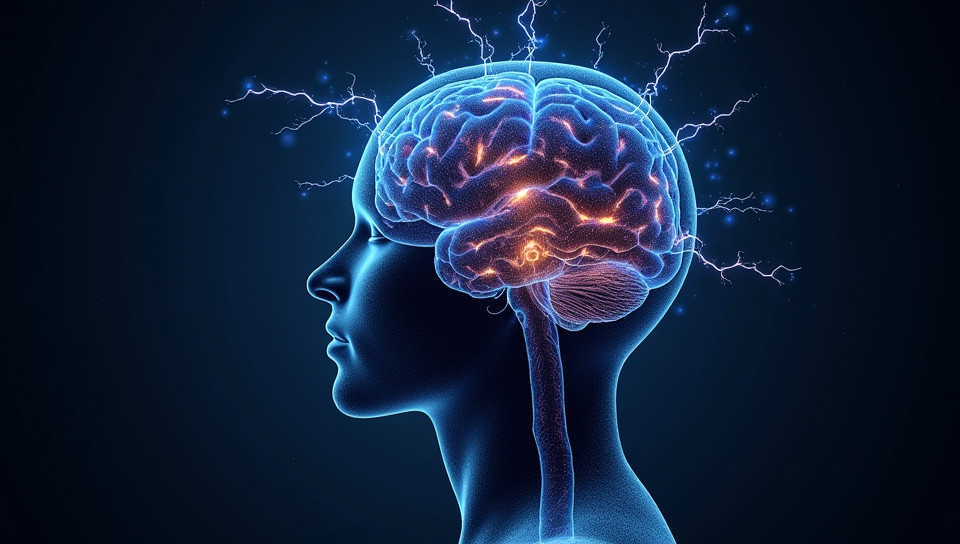Brain functions are controlled by electrical impulses and chemicals 45%

The Mysterious World of Brain Functions
Have you ever wondered how our brains process information, control our movements, and facilitate our thoughts? The answer lies in the complex interplay of electrical impulses and chemicals that govern our brain's functioning. In this article, we will delve into the fascinating world of brain functions and explore the crucial role that electrical impulses and chemicals play in controlling our minds.
Electrical Impulses: The Language of the Brain
Electrical impulses are the primary language of the brain, allowing neurons to communicate with each other and transmit information throughout the body. When a neuron is stimulated, it generates an electrical impulse that travels along its axon, releasing chemical signals into the synapse, where they bind to receptors on adjacent neurons.
- A single neuron can generate up to 100 electrical impulses per second.
- Electrical impulses can travel at speeds of up to 120 meters per second in the human brain.
- The human brain contains an estimated 86 billion neurons, each with thousands of synapses.
Chemical Messengers: The Regulators of Brain Functions
Chemicals play a crucial role in regulating brain functions by facilitating communication between neurons. Neurotransmitters, such as dopamine and serotonin, are released into the synapse, where they bind to specific receptors on adjacent neurons, influencing their activity.
- Dopamine is involved in motivation, reward, and movement control.
- Serotonin regulates mood, appetite, and sleep.
- Acetylcholine plays a key role in memory formation and cognitive processing.
The Complex Interplay between Electrical Impulses and Chemicals
The relationship between electrical impulses and chemicals is intricate and bidirectional. Electrical impulses trigger the release of chemicals, which in turn modulate the strength and frequency of subsequent electrical impulses. This interplay allows the brain to adapt and learn from experience, enabling complex behaviors such as problem-solving and decision-making.
Conclusion
In conclusion, the control of brain functions by electrical impulses and chemicals is a remarkable and intricate process that underlies all aspects of human cognition and behavior. Understanding this complex interplay is crucial for advancing our knowledge of neurological disorders, developing effective treatments, and improving our overall quality of life. By continuing to explore the mysteries of the brain, we can unlock new insights into the workings of the human mind and develop innovative solutions to improve human health and well-being.
- Created by: Victoria Ramírez
- Created at: Oct. 27, 2024, 11:04 a.m.
- ID: 14453









